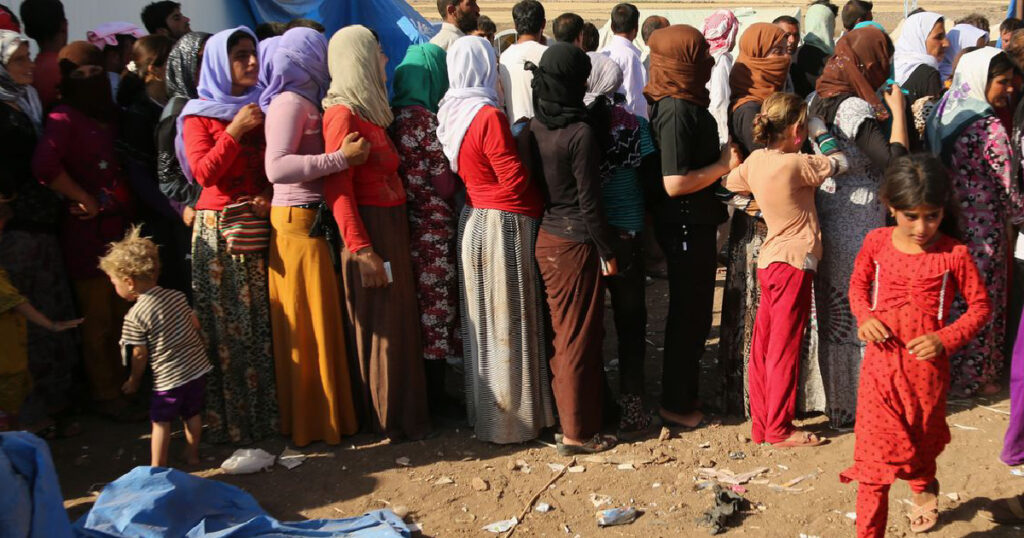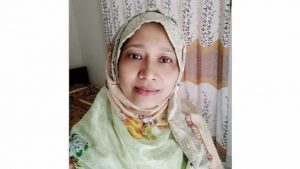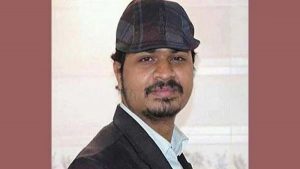DHAKA, NOVEMBER 27, 2019 – A survivor of the mass slaughter of the Yazidi minority in Iraq five years ago told the U.N. Security Council on Tuesday that he still hears his brothers and nephews calling his name before they were killed by Islamic State extremists — and he hears the screams of his wife and three daughters when the militants kidnapped them.The man, who was identified only as Kachi, said he is “still suffering from psychological harm” and “my life is extremely hard.”
But Kachi said in a video briefing that he believes he survived, “under a pile of dead bodies … by God’s will, to be a witness to the hideous crimes committed by the terrorist group” against the Yazidis.
He urged the international community not only to ensure that the perpetrators are prosecuted but to “acknowledge that the crimes committed against the Yazidi community amount to genocide.”
Kachi spoke at a council meeting on activities of the U.N. investigative team promoting accountability for crimes committed by the Islamic State extremist group in Iraq. Diplomats said he used only his first name for fear of reprisals.
Extremists from the Islamic State group, also known as Daesh and ISIL, rampaged through the Sinjar region of northern Iraq in August 2014, destroying villages and religious sites and shooting men and elderly women before kidnapping women and children and selling them in slave markets.
Kachi said he was living in Kojo when “terrorist gangs of Daesh took control over Sinjar and its villages” on Aug. 3, 2014.
Tens of thousands of Yazidis fled to the Sinjar mountains, but some 7,000 Yazidi women, children and men were killed or captured that day, he said.
Kojo was besieged for 12 days, until Aug. 14, 2014, when large numbers of militants entered the village, initially taking people to a school, robbing all their belongings, and then taking all the men — about 400 — to different locations on the outskirts near its orchards and farms, Kachi said.
“Later, they started shooting at us while shouting, `God is the greatest, Alahu Akbar,’ while carrying ISIL flags,” he said.
When they finished firing, they left for another place, he said.
Kachi said he was slightly injured, but alive under a pile of bodies.
“When I opened my eyes I saw three of my brothers. They were next to me. They were dead. So were my nephews and cousins,” he said.
“I managed to run away for fear of being killed by ISIL,” Kachi said. “I left the remains of my brothers and their children in that mass grave.”
“After all the men were killed, ISIL kidnapped the women, girls and children, around 850 of them, took them to the east of Sinjar,” he added.
“They separated the elderly women from the rest, around 77 women including my stepmother who was 90 years old. ISIL killed those elderly women or buried them alive in a mass grave,” Kachi said.
Then, he said, they took the rest of the women, including his wife and three daughters, and sold them in slave markets in Iraq and Syria.
“Today, I speak before you as I have lost around 75 members of my family and my brothers’ families who were killed at the hands of ISIL,” Kachi said.
Only 19 of Kojo’s 1,250 residents survived, he said.
Even though five years have passed, “I can still remember the remains of my brothers and my nephews. And I can still hear them calling my name … and I can still hear my wife and my daughters screaming when the members of ISIL kidnapped them.”
Kachi said his youngest daughter, Lara, who was 3 months old, died in captivity “because of thirst and hunger.” He did not say where he was speaking from, or what happened to his wife and two other daughters.
Despite the rout of Islamic State extremists, Yazidis say they are still unable to return to Sinjar or locate hundreds of their women and children enslaved by the militant group.
Karim Khan, who heads the U.N. investigative team, told the Security Council that the courage of survivors who come forward underlines the urgency of the team’s work to help ensure “those who inflicted their suffering will be held accountable.”
A year after the team’s arrival in Iraq, he said there has been significant progress in collecting documentary, digital, testimonial and forensic evidence in three priority areas — Mosul, Sinjar and Camp Speicher in Tikrit.
Khan said the team’s investigation of attacks on Yazidis in Sinjar has identified “over 160 perpetrators,” and work is now focused on building “case files that may be presented to appropriate courts.”
Khan said the team has also assisted the prosecution of two alleged Islamic State members facing war crimes charges in Finland and has been approached by other governments seeking its help.
“In a significant development,” he said, “the government of Iraq has also taken purposeful steps towards the introduction of legislation allowing for the prosecution of acts committed by ISIL as war crimes, crimes against humanity and genocide.” – UNB




